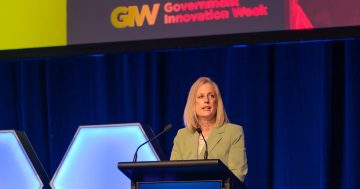
Scott Cass-Dunbar from Avanade Australia explores the pubic sector’s embrace of artificial intelligence: Photo: Supplied.
Artificial intelligence (AI) has emerged as a critical lever for transformation in Australia’s public sector – not just to automate tasks, but to help address the nation’s productivity slowdown.
With mounting economic pressures, the rising cost of living, and growing citizen expectations, the urgency to modernise how public services are delivered has never been greater.
Recent public sector AI trials have been promising. In the AI trials conducted by the Australian Public Service (APS), three in five managers reported improvements in efficiency and work quality thanks to generative AI tools. It’s a signal of how AI can reshape how government teams operate.
Momentum and investment into AI are also growing across Australian states and territories. South Australia, for example, has committed $28 million to pilot AI use cases in healthcare, policing, social services, and legal operations.
In NSW, 16 councils have received more than $2.7 million to trial AI-powered planning systems that will streamline and fast-track development applications for homeowners, councils, and developers.
While the potential is clear, the payoff can be more complex. Avanade’s research shows that while the private sector expects a fourfold return on AI investment within the first year, the public sector is only anticipating a modest twofold return.
The difference lies in the unique challenges of the industry: from navigating ethical risks and privacy concerns, to developing digital skills and earning public trust.
Unlocking AI’s full value in government will require more than just investment; it calls for a deliberate, purpose-led approach.
AI is working – but readiness isn’t uniform
Seven in 10 from the APS trial said generative AI helped them complete tasks faster, and 40 per cent said they reallocated saved time to higher-value work such as mentoring, strategic planning, and stakeholder engagement.
Yet not all departments are equally prepared. Some have formal AI governance frameworks and internal guidelines; others are still navigating the foundational steps.
Our research shows nearly half of agencies are developing internal AI guidelines – an encouraging sign, but also a call for greater coordination.
The success of any AI implementation will require more than just pilots and measuring productivity gains. Agencies must take a deliberate and transparent path that upholds public confidence.
One that aligns with policy, co-designed with public input, and incorporates the training, infrastructure and safeguards required for long-term trust and adoption.
Building AI literacy and leadership
Not surprisingly, the most in-demand skill in Australia for 2025 is AI literacy. In fact, the APS trial revealed that those who received multiple forms of training were 28 per cent more confident in using AI tools than those who received only one.
It’s clear that AI literacy is becoming a core competency across the public sector. But it goes beyond simply knowing how to use AI tools. It also involves understanding how AI makes decisions, where its limitations lie, and where it can fail – for example, when data quality is poor, context is lacking, or algorithms reflect historical bias. This deeper understanding is essential if AI is to be used ethically and effectively in government.
However, this can’t happen without strong leadership. Technical implementation is only half the equation – the other half is cultural. Change and trust in AI start at the top.
Government leaders must do more than endorse AI – they need to model its use, demonstrate transparency, and foster a culture where innovation is underpinned by integrity.
Only when public servants understand both the capabilities and the risks of AI – including how bias can be identified and reduced – can they become better equipped to engage transparently with the communities they serve.
Earning the public’s trust
In the public sector, the stakes for AI governance are distinctively high. These are institutions that manage sensitive data, deliver essential services, and operate under a social licence that depends on transparency, accountability, and equity.
Our research shows that 40 per cent of agencies are concerned about compliance with data laws, and 36 per cent are extremely concerned about AI bias leading to discrimination. These aren’t abstract fears – they’re real barriers to trust and, eventually, adoption.
That’s why strong governance must go hand-in-hand with innovation. Agencies should build in safeguards from the outset: regular audits, diverse datasets, open lines of accountability, and robust privacy and security measures. But equally important is citizen engagement.
AI won’t earn trust through backroom decisions – it must be seen, explained, and co-developed with the public. Because when we lead with trust, we don’t just adopt AI – we shape it for the public good.
A chance to lead with purpose
Australia has a unique opportunity to lead in purpose-driven AI adoption in government. But success won’t come from replicating solutions from the private sector. It will come from building an Australian model – one that is rooted in our values, diversity and citizen trust, and focused on our communities.
Getting there will require a coordinated effort across departments, levels of government, and public-private partnerships. If we get it right, the payoff will be powerful: more efficient services, more empowered workers, and fairer outcomes for all Australians.
Scott Cass-Dunbar is the Health and Public Sector Lead at Avanade Australia.
Original Article published by Scott Cass-Dunbar on Region Canberra.








